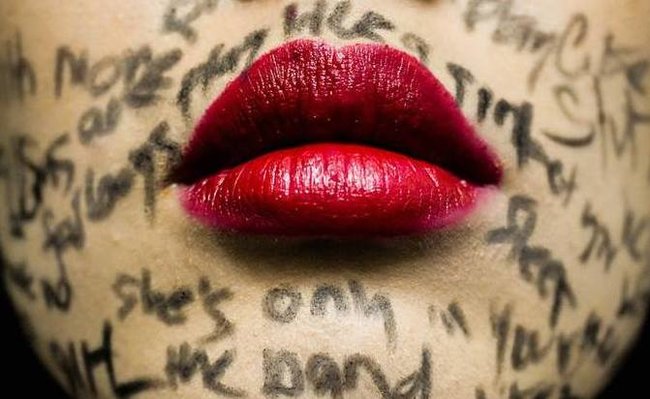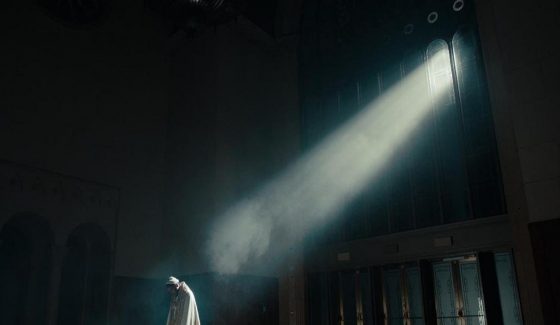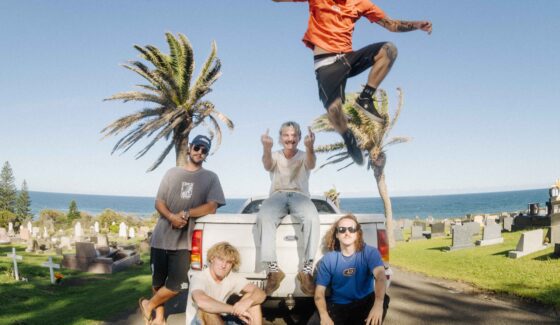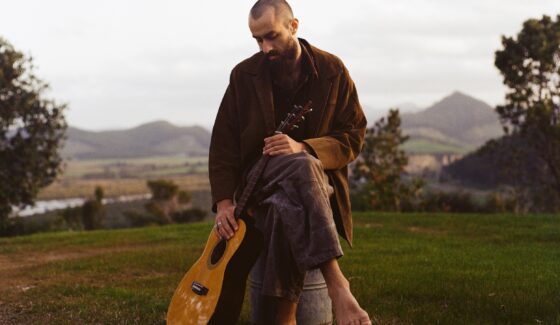Females Fighting Sexism In Queensland’s Music Industry

Photography by Amanda Terry, Vincent & Jules.
Sexism in the music industry has been an issue of contention in the media recently. CHVRCHES’ Lauren Mayberry hit out at the sexist culture, Ke$ha’s struggle went public in court, and a recent triple j study showed women make up only one in five artists registered with APRA. Clearly, there’s still a very real issue present.
We spoke to several women who work in Queensland’s music industry to find out about their experiences in the male-dominated industry and the instances of sexism they have faced.
Louise Sanders, bassist of all-girl band Being Jane Lane, says that while she personally hasn’t experienced a lot of sexism, the band’s drummer unfortunately has.
“Our drummer was waiting outside of Crowbar with some of her gear and had a young lad say something along the lines of ‘man, I should get my girlfriend to do that!’ She assumed he meant play drums but no, he was referring to her carrying his gear,” said Sanders.
She said although female musicians often face harsh judgement, that shouldn’t stop them from pursuing a career in music if they wish.
“Whether you join a band with boys or a band with girls, who cares?! At the end of the day you can’t let people judge you because of your gender, because you’re doing what you love.”
It’s not only females’ musical ability under scrutiny, but also the ability of women working in managerial and PR positions. This is particularly sad, as the recent triple j study shows that 45 per cent of artist managers surveyed were women.
Kylie Cobb, Director of Media and Marketing agency Kitty Kitty Bang Bang, says she has often felt her abilities questioned because of her gender.
“I feel like I often have to go further lengths to prove my capabilities. There are certain situations where I’ve been like, ‘I wonder if I were a man, if I’d have to go through so many hoops to demonstrate professionally that I’m capable of doing what I say I can do’,” said Cobb.
Cobb also notes she’s often been mistaken for something other than a manager or PR professional.
“On many occasions it’s been assumed that I’m a groupie. I get that from other bands too. I was in the role of band manager and went to go backstage and the girl at the door stopped me after the band went in and she’s like ‘you with the band?’. I told her I was the manager and she laughed and said she was sorry. She thought I was one of the groupies and was going to send me away.”
Bedlam Records’ Emma Jones says she has also felt as if she has to work harder to prove herself in the industry due to her gender.
“I’m fortunate enough to have only suffered mild sexism like not being taken seriously, excluded from important meetings, and having to prove myself immediately rather than have people just automatically except my role.
“It all got a bit much last year, and I contemplated leaving the industry and actually did step down from some roles, but you can’t deny passion so sure enough I was stuck back in within a few months,” said Jones.
Another side of sexism faced in the music industry is verbal abuse and sexist language, something that still occurs regularly for women working across many roles. CHVRCHES’ frontwoman Lauren Mayberry spoke out about the issue last year in an interview after having been the victim of verbal abuse.
“If you don’t like what a woman is wearing, you don’t like her opinion, you don’t like what it is she represents, then you fall back on the basic caveman arguments of threatening with physical and sexual violence because it is your trump card. Because that’s the way you get somebody to shut up. And I just think that is a very sad state of affairs,” Mayberry said.
In April 2014, Aussie-raised US rapper Iggy Azalea spoke out against deplorable actions by fans at her shows. Speaking to US radio station Hot 9, she had to publicly ask people to stop ‘fingering’ her when she crowdsurfs.
“I had to stop [crowdsurfing]…I still have to have barriers – even if it’s, like, 200 people – because people try to finger me. I will get lurk tweets for a week before my show, like, ‘I’m about to go to the Iggy Azalea show and I’m going to finger her’, and I’ll see it and be like, ‘Please don’t! That’s a violation. I don’t actually like that stuff’.
“They think I’m real slutty like, ‘She’s got a song called Pu$$y, I know what she wants. She wants these two fingers’. Why would I want a stranger to ever finger me? I don’t want that. Buying my album for $12 doesn’t mean you get to finger me when I come to your city,” said Azalea.
Amanda Terry, one half of Brisbane booking agency Vincent & Jules, says she has also experienced sexist behaviour within Brisbane’s music scene.
“I had a case not so long ago surrounding the questionable behaviour of a venue owner…when turning down his free drink he questioned my existence, not remembering the discussion of future collaborations earlier that night,” said Terry.
Unfortunately, she says this wasn’t the last time the venue owner would use his position of power to cause discomfort.
“It was only when I found out about a trans friend’s physical assault [by the same person] that I was driven to publicly say something. Several people got in contact and urged me to do something. He then called and threatened me with a law suit saying that I was a liar, those women and men were liars.”
While there is a level of sexism in the industry, Kylie Cobb says women must not let it discourage them to the point of exclusion.
“Understand what you can do and what you’re capable of, and be confident [in communicating] that. Know what you know and what you don’t. Another thing is to connect and work with other women doing really cool stuff,” said Cobb.
Jones agrees with this advice, saying there are many women out there looking to connect with each other in the industry.
“You’ll find when people are oppressed or discriminated against, they’ll form their own communities where they can support each other. So if things get hard, reach out and ask for advice, or even just someone to vent to who knows what you’re going through!” said Jones.
In November last year WAAX’s frontwoman Marie DeVita talked to The Music about the challenges she’s faced as a woman in an emerging band.
“As a female in the industry, a little complex that I had when I first started in this band was that I kind of thought because I was a girl that maybe my opinions weren’t as valid or that I wasn’t experienced enough in comparison to the other guys in my band.
“It’s definitely something that I have had to overcome and be more confident in my own ideas and direction and intuition and not constantly put myself down because I’m a female and think that I can’t measure up to all the ‘big guns’ in the rock world.
“[But] guys don’t have it as peachy as what it seems at all. They all go through stuff as well and working in a band with a bunch of guys you definitely see that there is a lot of pressure on them as well,” said DeVita.
Through communication and unity, women have a better chance at breaking into the industry which is still very much a boys’ club. By standing together against sexist behaviour, there’s a chance Queensland can build a scene of respect and kindness to be proud of!
For more on sexism in the music industry, watch Lauren Mayberry’s interview below.







